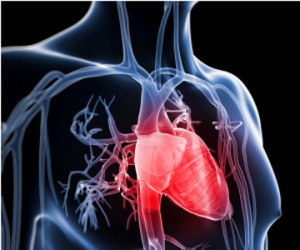- Home
- Editorial
- News
- Practice Guidelines
- Anesthesiology Guidelines
- Cancer Guidelines
- Cardiac Sciences Guidelines
- Critical Care Guidelines
- Dentistry Guidelines
- Dermatology Guidelines
- Diabetes and Endo Guidelines
- Diagnostics Guidelines
- ENT Guidelines
- Featured Practice Guidelines
- Gastroenterology Guidelines
- Geriatrics Guidelines
- Medicine Guidelines
- Nephrology Guidelines
- Neurosciences Guidelines
- Obs and Gynae Guidelines
- Ophthalmology Guidelines
- Orthopaedics Guidelines
- Paediatrics Guidelines
- Psychiatry Guidelines
- Pulmonology Guidelines
- Radiology Guidelines
- Surgery Guidelines
- Urology Guidelines
Current anti-hypertensive medicines control BP but don’t restore microvascular function

Treatments for high blood pressure do not totally reverse its damaging effects on the vascular rhythms that help circulation of the blood say researchers. World Health Organisation says hypertension affects about 40% of those aged over 25 and is a major risk factor for heart disease, stroke and kidney failure.
An interdisciplinary group of scientists from Lancaster University found that conventional medication aimed at reducing high blood pressure restored normal vascular rhythms only in the largest blood vessels but not the smallest ones.
Professor Aneta Stefanovska said: "It is clear that current anti-hypertensive treatments, while successfully controlling blood pressure, do not restore microvascular function."
Based on a networks physiology approach, the researchers compared a group aged in their twenties and two older groups aged around 70 - one with no history of hypertension and the other taking medications for high blood pressure.
In the older group being treated for high blood pressure the drug treatment restored normal function at the level of arterioles and larger vessels.But when the researchers studied the nonlinear dynamical properties of the smallest blood vessels in the body, they found differences between the two older groups.
"Specifically, current hypertensive treatment did not fully restore the coherence or the strength of coupling between oscillations in the heart rate, respiration, and vascular rhythms (vasomotion).
"These are thought to be important in the efficient and adaptive behaviour of the cardiovascular system. Indeed, one aspect of ageing is the progressive physiological weakening of these links that keep the cardiovascular system reactive and functional.
"The results have not only confirmed previous observations of progressive impairment with age of the underlying mechanisms of coordination between cardiac and microvascular activity, but for the first time have revealed that these effects are exacerbated in hypertension.
"Current antihypertensive treatment is evidently unable to correct this dysfunction. Our novel multiscale analysis methods could help in optimising future drug developments that would benefit from taking microvascular function into account."
For more details click on the link: http://dx.doi.org/10.3389/fphys.2017.00749

Disclaimer: This site is primarily intended for healthcare professionals. Any content/information on this website does not replace the advice of medical and/or health professionals and should not be construed as medical/diagnostic advice/endorsement or prescription. Use of this site is subject to our terms of use, privacy policy, advertisement policy. © 2020 Minerva Medical Treatment Pvt Ltd